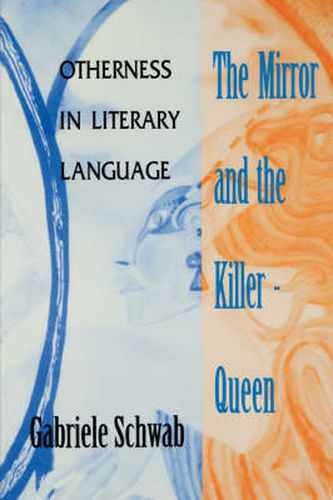Readings Newsletter
Become a Readings Member to make your shopping experience even easier.
Sign in or sign up for free!
You’re not far away from qualifying for FREE standard shipping within Australia
You’ve qualified for FREE standard shipping within Australia
The cart is loading…






The book not only confirms the high ethical stakes in informed contemporary reading; it offers a rare readerly pleasure in … exploring the wider cultural significance of gender and the body and their narrative representation. -Henry Sussman, SUNY-Buffalo
Gabriele Schwab revitalizes debates about literature’s cultural function by exploring literary experience as an encounter with otherness. Drawing on literary theory, anthropology, and psychoanalysis, Schwab contends that literature facilitates contact with cultures that may seem foreign to us. At the same time, literature can render the familiar strange, and foreground what a culture tends to repress. At its best, literature challenges the very boundaries of the culture from which it emerges.
Schwab’s readings of writers such as Hawthorne, Faulkner, Joyce, Lewis Carroll, Djuna Barnes, Marguerite Duras, and John Cage demonstrate the centrality of aesthetics and the literary to studies of otherness and cultural contact.
$9.00 standard shipping within Australia
FREE standard shipping within Australia for orders over $100.00
Express & International shipping calculated at checkout
The book not only confirms the high ethical stakes in informed contemporary reading; it offers a rare readerly pleasure in … exploring the wider cultural significance of gender and the body and their narrative representation. -Henry Sussman, SUNY-Buffalo
Gabriele Schwab revitalizes debates about literature’s cultural function by exploring literary experience as an encounter with otherness. Drawing on literary theory, anthropology, and psychoanalysis, Schwab contends that literature facilitates contact with cultures that may seem foreign to us. At the same time, literature can render the familiar strange, and foreground what a culture tends to repress. At its best, literature challenges the very boundaries of the culture from which it emerges.
Schwab’s readings of writers such as Hawthorne, Faulkner, Joyce, Lewis Carroll, Djuna Barnes, Marguerite Duras, and John Cage demonstrate the centrality of aesthetics and the literary to studies of otherness and cultural contact.